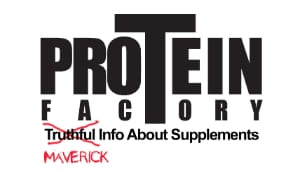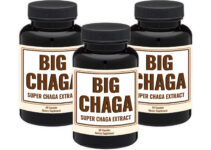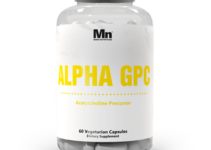It’s been said — “The only thing that is new is what’s been forgotten.” And that is certainly true with both health fads and muscle building gimmicks. And one thing that has gotten a resurgence in popularity as of late is fasting. Everybody’s doing it! You’ll read about a multitude of benefits, including…
Increased energy.
Detoxing of the internal organs.
Weight loss. (Obviously).
Improved fat burning.
Prevention of Diabetes.
Improved cognitive ability.
Sounds great, right? But does intermittent fasting work? One problem. It’s not entirely true. This is yet another case of using tidbits of information to draw a conclusion. And very often, the conclusion being drawn is one that the people conducting these studies want. Or, in some cases, they’re simply drawing the wrong conclusions.
Science is always correct. But studies aren’t always conducted correctly. Nor are they always interpreted correctly. The proof is that scientific evidence is discredited and debunked all the time. Years go by, new information comes along, and what was thought to be accurate is then dismissed. Scientists will also often look at the conclusion of the study and miss the real-world applications. It’s the old joke — “the surgery was a success, but the patient died.” What is genuinely valid and what is a good hypothesis is a source of constant controversy, and that most certainly is the case here. Studies are one thing — results are another. So let’s look at some of these supposed benefits of intermittent fasting and see how they hold up to logical examination and answer the question, “Does intermittent fasting work?”
First off, What Exactly Constitutes Intermittent Fasting?
Right here, there is some debate. How long is a fast? 24 hours? 48 hours. 15? The truth of the matter is the body is essentially in a fasted state every time you’re hungry. And you should get hungry several times a day. Unfortunately, too often, the American way of eating is to eat until you’re full and then when you can eat again ….you eat again. That puts tremendous stress on the liver, kidneys, and pancreas. So giving your body a break from food now and then is a good idea. The question is, how long is good and how long is too much? Some intermittent fasting advocates that the “magic” doesn’t start until after 72 hours. Maybe so, but I can guarantee that whatever benefits come from that are far outnumbered by the deleterious effects.
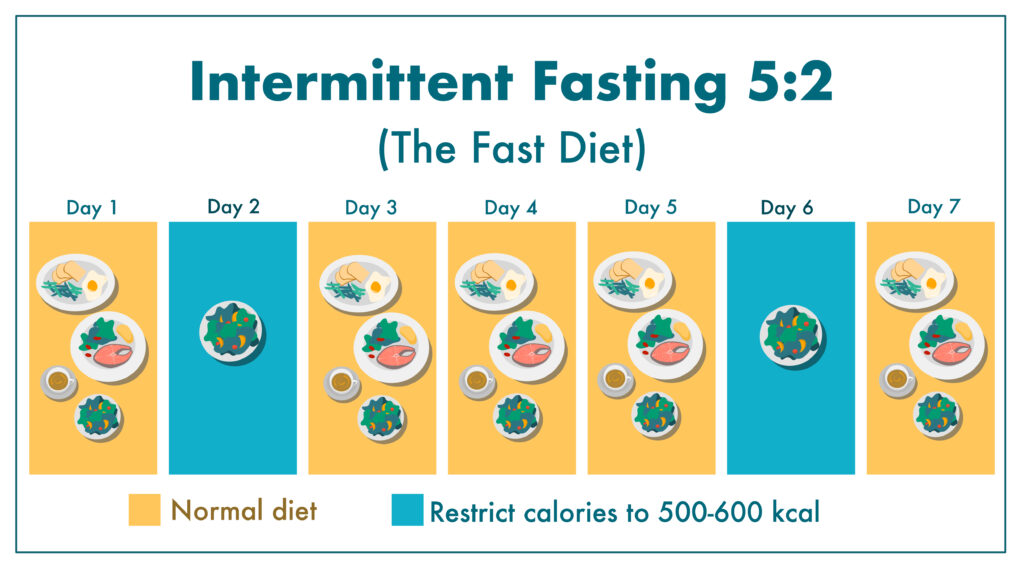
HUNGER CAN BE YOUR FRIEND
The bottom line with weight/fat loss is that it can not happen unless you get hungry. That’s when weight loss occurs. Embrace it! If you want to lean out, you must be able to tolerate some hunger now and then. And that’s more a case of recognizing the fact that hunger isn’t always a matter of needing food. It’s a matter of feeling “comfort.” We eat for pleasure as much, if not more than we eat for sustenance. One method to avoid overeating is to simply get distracted. Stay busy! It’s amazing how when you focus on something; suddenly you’re no longer thinking about food. Another trick is to drink seltzer or club soda. Besides being a fluid, the carbonation provides a feeling of fullness without any calories. Always try to make it to the hour or half-hour before grabbing that snack. More often than not, you’ll find you don’t need it.
One old school tactic for getting lean is to simply skip breakfast. But wait a minute… isn’t breakfast “the most important meal of the day?” Says who? Think about it, if you eat dinner at 7:00 and have a snack at 9:00, then in the morning, have a cup of coffee until lunch, well, that’s a 15 hour fast! And it isn’t tortured. Do that every other day, and you’re sure to lean out –as long as you don’t binge later in the day, which is quite possible when going too long being hungry. That too happens when people come off of a fast.
YOU AREN’T BETTER INFORMED IF YOU JUST HAVE MORE WRONG INFORMATION
This next statement is the crux to the entire issue, so…pay attention.
“THE BODY IS A PRIMITIVE AND HIGHLY EFFICIENT MECHANISM, AND IT’S NUMBER ONE PRIORITY IS SURVIVAL.”
Always remember, the body doesn’t care what you want to look like. It only knows self-preservation and will respond according to what it experiences. Once you go longer than 24 hours without food, it detects a famine. And it’ll do what it must to survive.
So keeping that in mind, let’s look at some of the so-called benefits that occur while in a fasted state. One thing people experience is that they are no longer hungry. Another is that they suddenly have a lot of energy. “Oh, wow! That must mean all the toxins are leaving my body!” Nope. The reason you have no appetite and have energy is that your bloodstream is being flooded with adrenaline! And why? Because the body doesn’t know that there’s food in the refrigerator or that there’s a Chick-Fil-A down the block. As far as it knows, you still live in a cave, and if it needs food, it’s going to give you the energy to go get it. Go find something, kill it and eat it! Unfortunately, adrenaline is very catabolic. It destroys muscle. It’s a stress hormone that is released in a state of panic. And that is something that has its own studies to prove the point. Curiously, adrenaline secretion drops off after 72 hours of fasting. One may interpret that as a good thing. But keep in mind, the body will run out of its self-preserving capabilities after a while. If there is no more adrenaline, it’s a sign that the vital functions are beginning to fail. For that reason alone, you’d want to avoid being in that state. But there’s more…
STUDIES SAY THAT INTERMITTENT FASTING INCREASES BRAIN FUNCTION? BUT HOW?
This is one that seems perplexing — until you take a closer look. Every study that shows being in a fasted state improves brain function was done on animals. Now, how can they tell their cognitive ability has been heightened? Are they asking them trigonometry questions? The way they test the intelligence of a rat is to put it in a maze and see how long it takes to figure out where the food is. Well, is it any wonder that the fasted rat finds it more quickly than a well-fed rat? It’s fucking starving!
SUGAR SUGAR
If you’ve ever experienced hypoglycemic symptoms, you know it isn’t pleasant dizziness, weakness, lethargy. That isn’t because your muscles don’t have enough sugar. It’s because your brain doesn’t. It MUST have glucose. Now people on restricted carb diets may claim they do alright without carbs, but in that case, the body is running on ketones (not exactly healthy, but that’s a topic for another time), yet, the brain is still getting glucose and without carbs, it’s getting it from protein. Protein will convert to glucose, just not nearly as well as carbs, but again, in a state of survival, the body will do what it has to do. Nevertheless, the body always prefers carbs for fuel. Incidentally, some people would never dare eat a cookie, but they eat rice, potatoes, oatmeal, etc. Well, all that turns to glucose within the hour! It has other nutrients and fiber, whereas plain sugar is nutritionally valueless, and sugar will spike insulin levels causing more fat storage, but as far as the body is concerned in regard to fuel, it isn’t that much of a difference. People think fructose isn’t as bad as cane sugar because it isn’t quite as “high glycemic,” but it’s worse in other ways. Fructose and corn syrup will dramatically increase triglyceride levels leading to hardening of the arteries. Obviously, sugar should be kept to a minimum. Nonetheless, there’s no secret formula or magical combination to weight loss, better health, or more effective bodybuilding other than eating wholesome food, emphasizing protein, and not overeating.
HERE IS THE CRUX — THIS IS HOW THE BODY GETS ITS ENERGY AND HOW IT BUILDS MUSCLE
So we’ve established that the first source of energy is carbohydrates because they are what are most easily converted to glucose. Carbs have four calories per gram. It’s important to keep that in mind. You may have heard theories about doing cardio on an empty stomach so that you no longer have carbs in the bloodstream. But it would take quite a while before absolutely no carbs are present. But in a fasted state, that could happen. And it’ll take approximately 24 hours of zero food.
So assuming you use all the carbs in your system, the body still needs fuel. Therefore, what will it use for fuel at that point? Fat? WRONG!
That’s a common belief — or should I say, the hope and wish.
For one thing, if the body is attempting to protect itself since we’ve established that its main priority is survival, it will actually hoard fat since fat protects organs and is used for a long-duration activity. You burn more fat walking a mile than running a mile — because it takes longer. And fat is nine calories per gram, so in essence, it requires more effect to be put into use. Besides, there’s another four calories per gram food source — protein. And what on the body is protein? MUSCLE! As well as skin and cardiac tissue. (*It should be stated that people who are anorexic often die of heart failure before they die of malnutrition). And if you’re a bodybuilder, you’ve got plenty of muscle to spare. But is that what you want?
WHAT THE HECK IS AUTOPHAGY?
You may have heard this term regarding intermittent fasting. Autophagy is the body’s way of cleaning out damaged cells in order to regenerate newer, healthier cells, at least according to nutritionist Priya Khorana. (By the way, a degree in nutrition requirement is just a regular B.S. 4 years of college). Anyway, “Auto” means self, and “phagy” means eat. So the literal meaning of autophagy is “self-eating.” In other words, it’s catabolism. One of the claims is that old muscle cells die and new ones are made. Sure — that happens all the time in daily life. Cells die, cells regenerate. The process slows as we age yet continues until we stop living. But for bodybuilding performance purposes, we want more re-generation as much as possible! In short, we want more cell growth than cell loss. That’s the BUILD part in “bodybuilding.” There does seem to be certain supposed health benefits associated with Autophagy, such as a “detoxing” and the release of Growth Hormone. But it’s very difficult, if not impossible, to measure accurately. Then again, lots of things release toxins, including sweating and defecating. And lots of things release GH, including squatting and taking a nap.
ANABOLISM FOR DUMMIES
As one goes along studying and examining any topic, there comes a better understanding, and along with that is the tendency to think on a deeper level. But when extraordinary expertise is achieved where one comes full circle, and things are once again simplified. You see through the extraneous factors and get down to the heart of the matter. So let’s get back to basics and take a look at how muscle is really built and break it down in common sense terms. In this way, we can better analyze the results of intermittent fasting.
IT’S NOT HOW MUCH YOU GET; IT’S HOW OFTEN YOU GET IT
Muscle is made bigger and stronger through the process of nitrogen retention. Simply put, you absorb aminos, and they repair muscle tissue. The more the muscle tissue has been broken down from exercise, the more the body will utilize protein to rebuild it. The more protein that is available, the more potential muscle growth. This is so simple that many people think they understand it when, in fact, they have it all wrong.
It isn’t so much the amount of protein that we ingest that is a factor. It’s the availability that counts. When food passes through the small intestines, the vili grabs nutrients in a very “catch as catch can” manner. Most food leaves the body as waste. So even though you may have eaten a big steak, the time it takes to pass through the intestines might just be a couple of hours, whereas there are 24 hours of potential absorption of protein and hence, potential muscle growth. This is why the old-time bodybuilders believed in eating small meals throughout the day, plus taking amino acid tablets in-between meals. It was also a practice to take them first thing in the morning and even if they woke up in the middle of the night. They didn’t want to waste an opportunity to get protein to the muscles!
IS INSULIN A SIN?
Some fasting advocates will cite that constant eating increases the release of insulin, which stores fat. But if the meals are small, it would only release a small amount of insulin. And if you’re active, you burn those calories up easily. No one is suggesting breakfasts of pancakes with syrup and a bowl of Fruit Loops. But unless you’re diabetic or have a malfunctioning pancreas, it can handle reasonable amounts of food. And insulin is anabolic! You can also aid insulin by taking certain herbs and nutrients. Berberine, Bitter Melon, Gymnema Sylvestre, Alpha Lipoic Acid, and Vanadyl Sulfate will all help in the conversion of insulin synthesis. But much of this can be avoided if we think like bodybuilders and make protein the main macronutrient at all times. Not only is protein the only nutrient that will directly build muscle tissue, it doesn’t cause a big insulin spike. This is also why protein shakes offer a very real advantage in the hypertrophy equation because they are so easily absorbed without being too “filling,” therefore leaving room for more food. No self-respecting bodybuilder should be without spare protein powder to make a quick shake for a fast blast of protein. But instead of buying pre-made brands, it’s best to buy unflavored protein and make your own flavors fresh — add cocoa for chocolate, bananas, strawberries, or even coffee. If you want to bulk, add vanilla ice cream. It’ll taste better and be more economical than the name brands at the local health food store.
SAFE STEROIDS — HARMFUL STEROIDS
It’s no mystery that this process of anabolism is enhanced with the use of steroids.
They are both androgenic — which increases male attributes, including greater strength — and anabolic, which increases the amount of protein that is converted to muscle. They basically make training and eating more productive! It’s interesting to note that the steroid Primobolan is often regarded as weak compared to other steroids. That’s because all it does is the anabolic process. It’s very good at converting protein into muscle. That’s what we all want, right? Yet, compared to Dianabol, which increases blood volume, it isn’t nearly as dramatic. With Dianabol, you get a pump picking the dumbbells off of the rack! The veterinarian steroid “Trenbolone” (which was once considered something only a professional competitor would use because of its multitude of harmful side effects) has become popular with gym rats and the fitness message board crowd for the simple reason that the results are quick and dramatic. You will burn fat like crazy on Tren! Of course, it does so by cooking your insides, but hey…people want fast, and they want easy. Although Primobolan will provide twice the gains you get from training naturally, you’ll still have to train hard and take in enough protein for it to do what it does. SO if you think Primobolan is weak, you’re either not taking in enough protein, or you’re training like a wus. That says a lot about the mindset of too many people today. They want the drugs to do all the “heavy lifting,” so to speak. Drugs are an enhancement, but it still comes down to proper training. Otherwise, it’s a case of the tail wagging the dog. The old rules still apply and always will — lift heavy, often lift and eat lots of protein. Do that enough, and you will get results. And that leads us up right back to where we started. Once it’s understood how the body builds muscle and how it uses nutrients to do so, it becomes apparent that long periods without food can only work against your muscle growth goals.
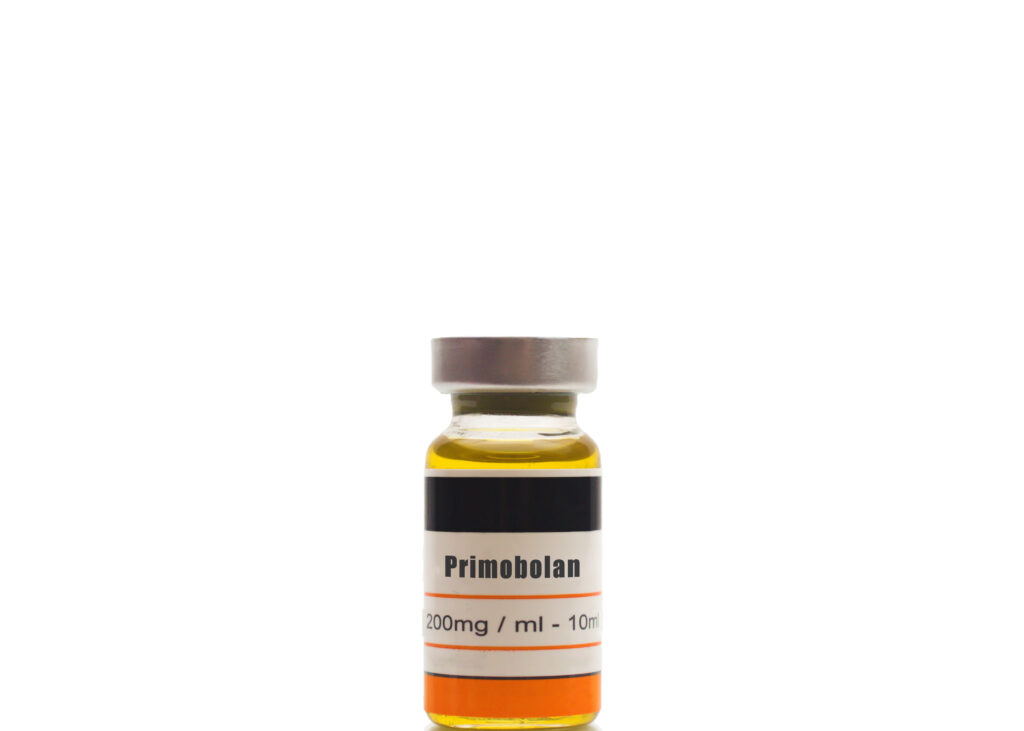
DON’T DEFEND A LOSING PROPOSITION
It’s tough to accept something that you believe to be true is in error. No one ever says “thank you” for being proven wrong. People want to believe what they want to believe. Millions of people believe in the benefits of acupuncture even though there isn’t a shred of scientific evidence that it does anything at all. It’s pure placebo. But if someone thinks it’s working for them, who am I to tell them they’re wrong? And the same goes for intermittent fasting. Some people like it. They feel “cleansed.” They lost weight, and the results speak for themselves. Fine. But when someone says they build more muscle by not eating, that has as much credibility as saying they built more muscle by doing yoga instead of lifting weights. And I’m sure you can find a study that’ll show that! But it’s just not so in reality.
If you choose to cut back on calories, then cut back mostly on carbs and fats. But never cut them out altogether. You need them all. You just don’t want an excess of either.
So What Is The Answer? Does Intermittent Fasting Work?
Intermittent fasting is in vogue with a new generation who may not even be aware that it’s been around for centuries. And it isn’t like it’s spawned a bounty of centenarians.
Jack LaLanne experimented with every type of diet imaginable before he settled on the basic concept of eating a balance of healthy foods you enjoy and concentrate on exercise. He said, “You don’t build a championship racehorse by the way you feed it. You build it by training it!” La Lanne lived to be 96. Meanwhile, one of the first advocates of intermittent fasting was Clive McCay, who swore that following the guidelines of his research, people could live far beyond 100 years of age. He kicked off at 68. And then there’s Jeanne Calment, who is on record as being the oldest living human being. She lived to be 122 years old. Her secret? She says she made sure she ate “a good amount of chocolate every day.”
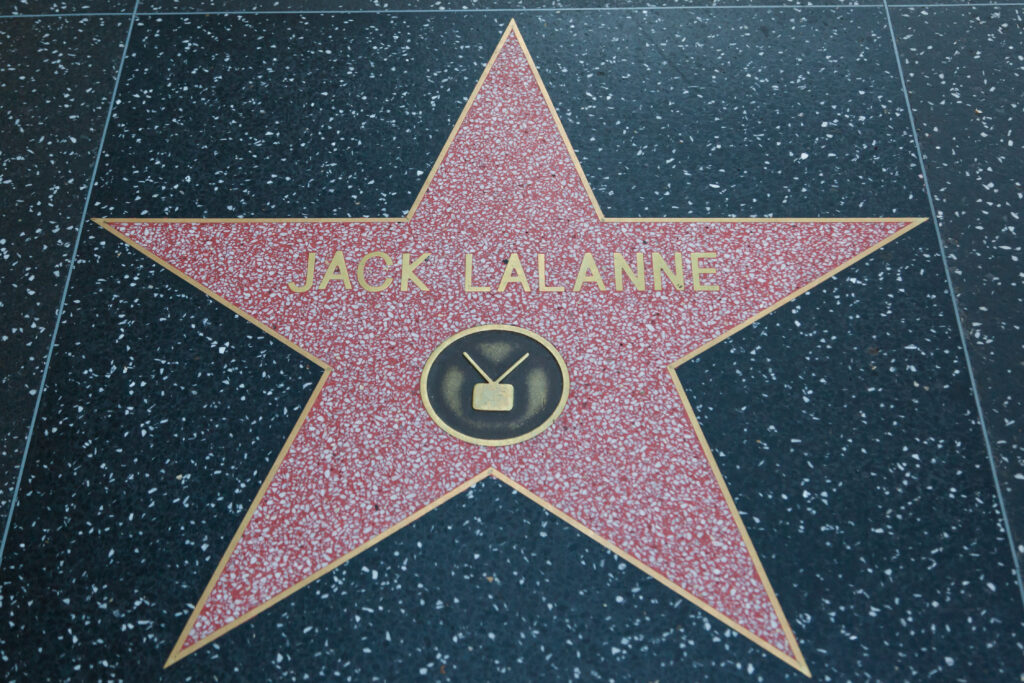
So how about a compromise? Cutting back on calories and big meals can be a step in the right direction. You may be surprised to find out you don’t need as much food as you thought. But if you want to build more muscle, you need to eat. And you need plenty of protein. Go too long without it, and you not only stop growing, but your muscles will begin to atrophy — ever so slightly, but in this game, it’s a constant battle against Mother Nature. She likes homeostasis. The body doesn’t want to change. Getting it to pack on more muscle takes work and manipulation. You have to fight for every ounce you can get. You can’t let up.
Don’t stress it by denying it nourishment for too long.
Bon Appetit’!

Nelson Montana is a bodybuilding expert and author. He has written hundreds of articles for all types of bodybuilding media outlets. He is the author of two books, The Bodybuilding Truth & Bottom Line Bodybuilding. He is also an expert supplement formulator and is the creator of the best-selling testosterone supplement Unleashed.
